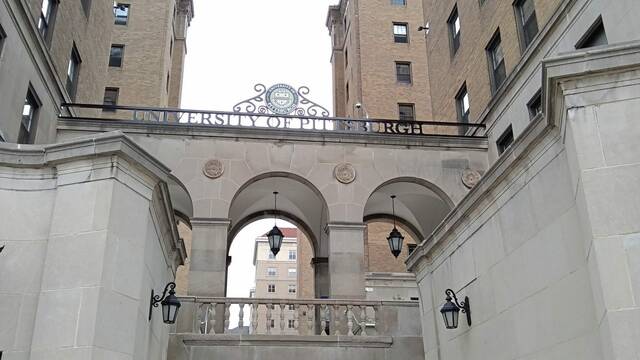https://triblive.com/opinion/editorial-taxing-students-patients-instead-of-nonprofits-is-ludicrous/
Editorial: Taxing students, patients instead of nonprofits is ludicrous

Pittsburgh might have been built by the big-profit industries of steel and coal and glass, but today its economy is driven by high-dollar nonprofits.
There are the institutions of higher learning. The University of Pittsburgh is one of the largest in a state full of post-secondary schools. Carnegie Mellon University is one of the most respected in the world when it comes to fields like computers and robotics. Duquesne University is one of the oldest Catholic colleges in Pennsylvania.
Tens of thousands of students attend nonprofit, parochial or government-affiliated schools in the city. Among Pitt, Carnegie Mellon and Duquesne undergraduates alone, the number tops 43,000, each paying thousands in tuition.
Then there are the hospitals. UPMC is the state’s largest health system. UPMC Shadyside is one of the state’s largest hospitals. It’s just one of UPMC’s Pittsburgh facilities. Highmark’s Allegheny Health Network operates in the city, too. Millions of bills are generated by them through inpatient stays and outpatient procedures.
From students to patients, Pittsburgh’s economy runs on these engines. The city’s coffers, however, don’t reap the taxes off nonprofit property that come from for-profit buildings. That has been a sticking point for years, not just for Pittsburgh but for other municipalities and counties that are home to large amounts of nonprofit real estate.
Pittsburgh City Councilman Ricky Burgess proposed a 1% tax on tuition and medical bills, the proceeds earmarked for infrastructure. He called it “very modest,” but with the number of people affected, it could top $50 million.
It might be modest compared with Pitt’s $4 billion endowment or UPMC’s record-breaking 2021 revenues, but someone studying social work at Pitt would have to pay about $200 a year in tax on top of student loans. Medical bills often are cited as a top cause of bankruptcy. Is tacking on hundreds more in tax a way to serve the people?
No. Especially since the proposal targets the recipients of services provided by nonprofits simply because the nonprofits themselves can’t be legally taxed.
“The bill itself is troublesome,” City Controller Michael Lamb said. “The end result has to be a meaningful contribution from nonprofits, not from their students and not from their patients.”
While Burgess’ proposal is ludicrous and heartless, it does point to a desperate need. Nonprofits and municipalities need to broker deals that are fair and acceptable to both sides to offset what is not provided through taxes, because the alternative is government finding new ways to squeeze money out of the people who can least afford it.
Copyright ©2026— Trib Total Media, LLC (TribLIVE.com)
